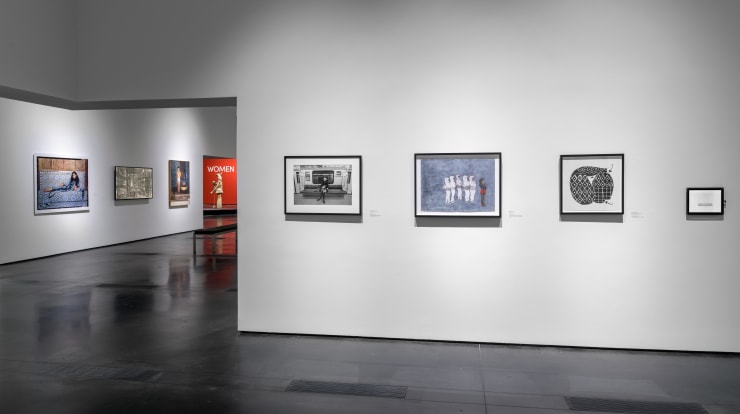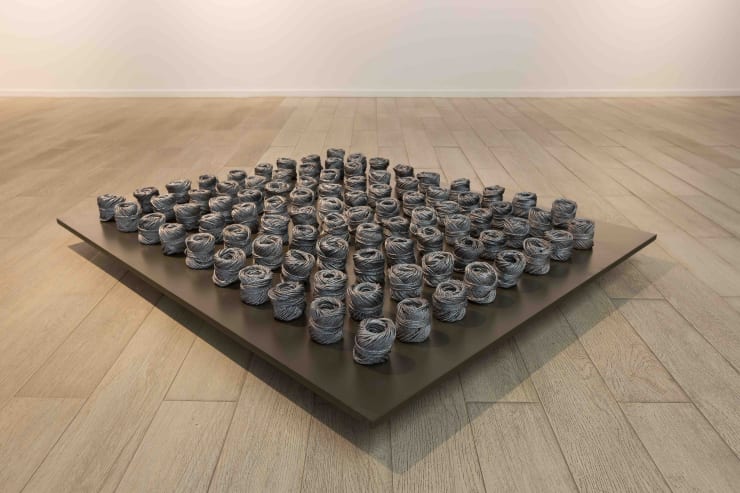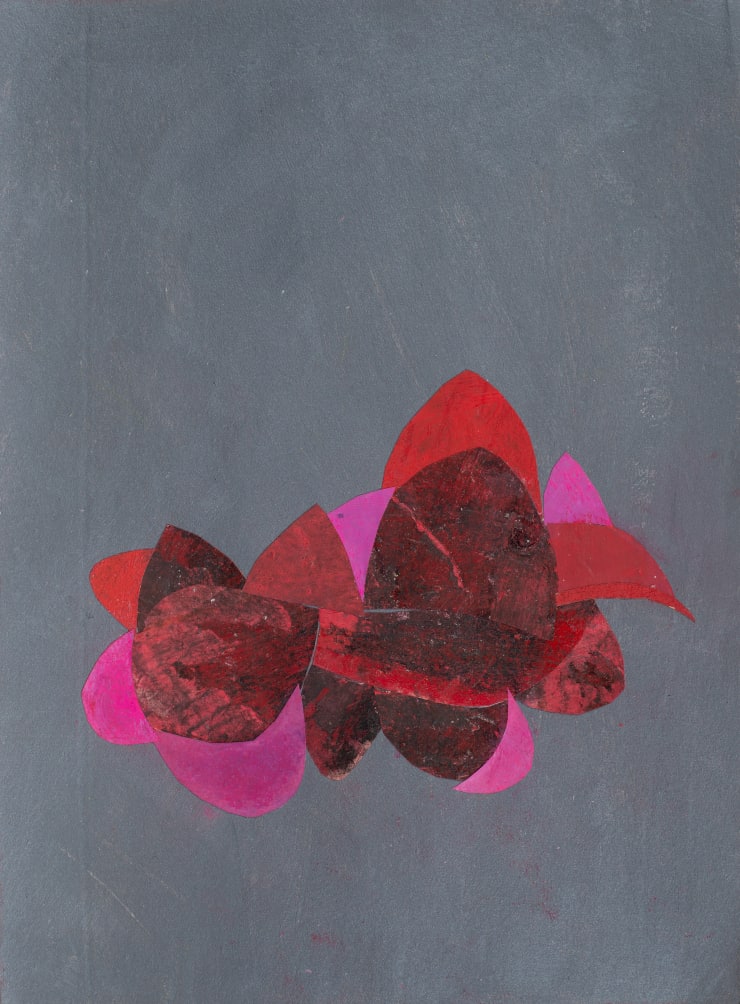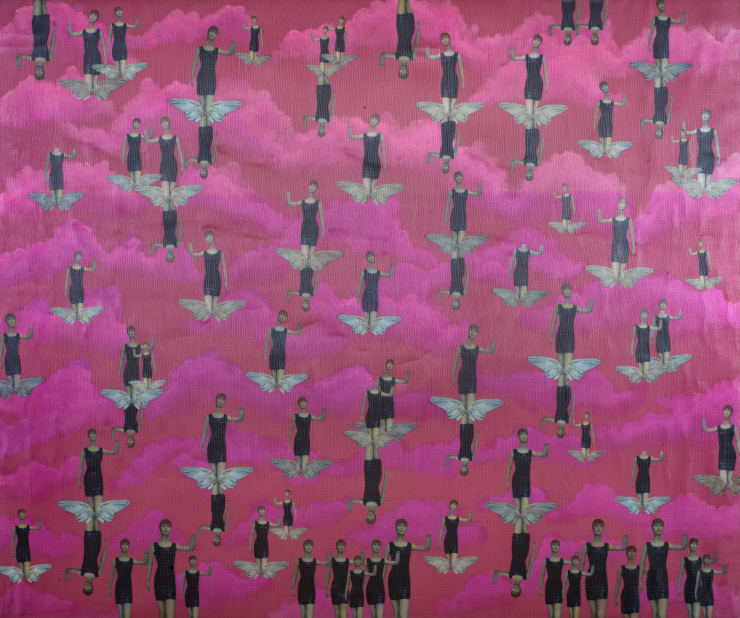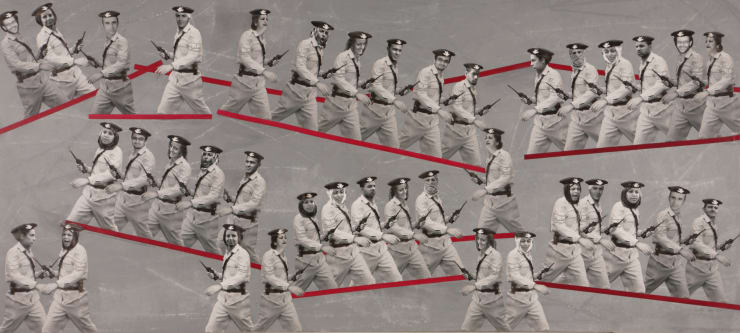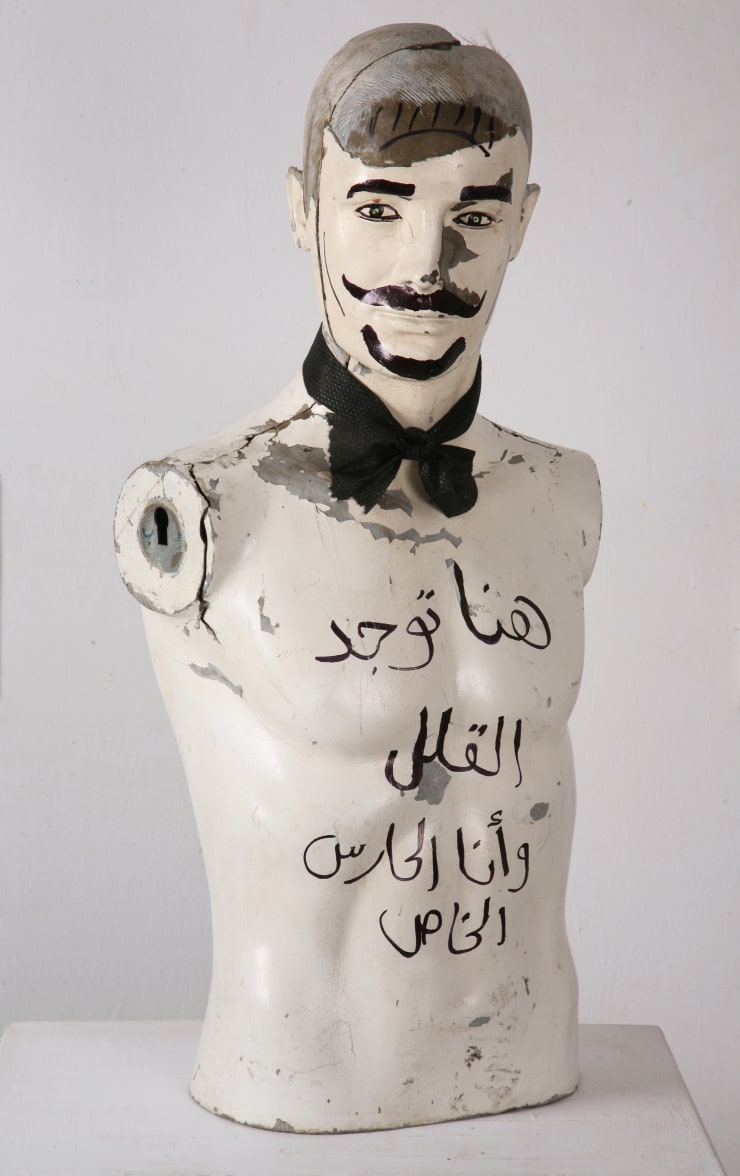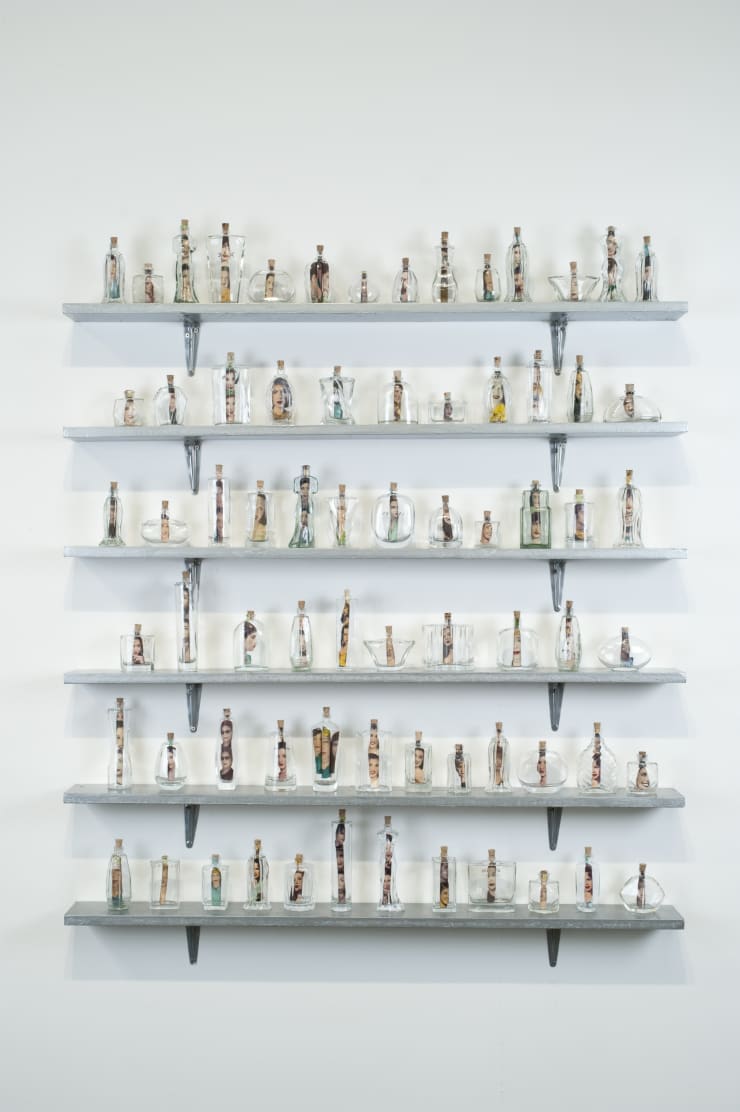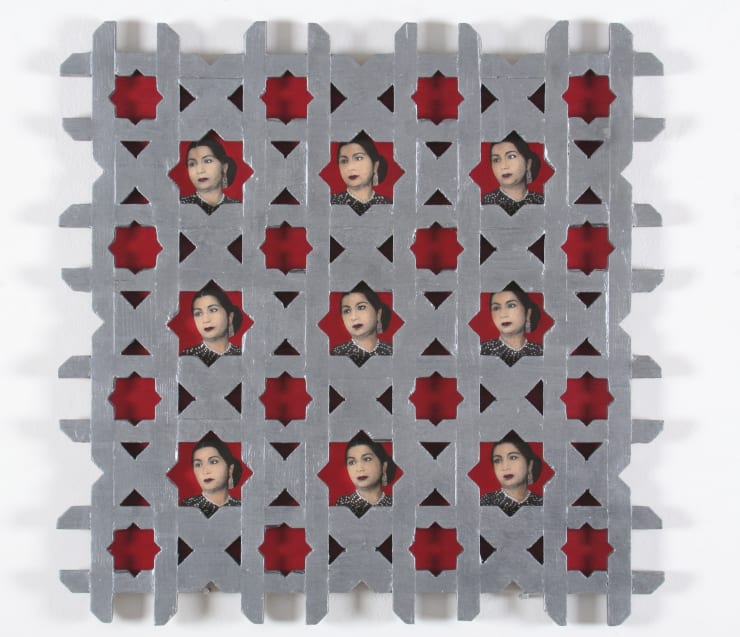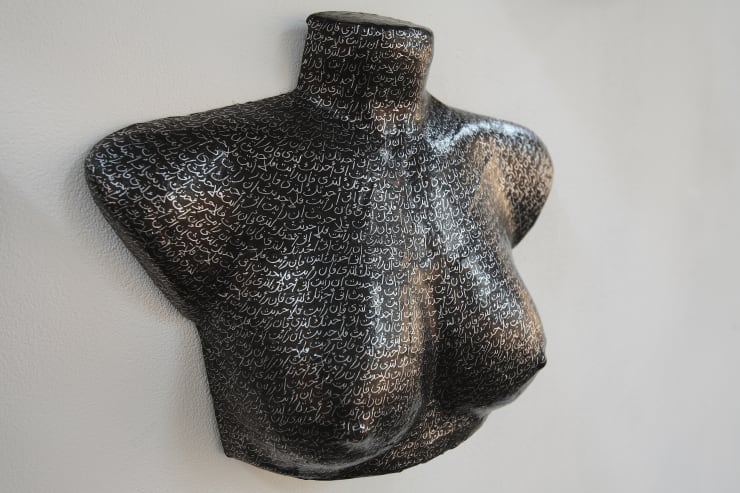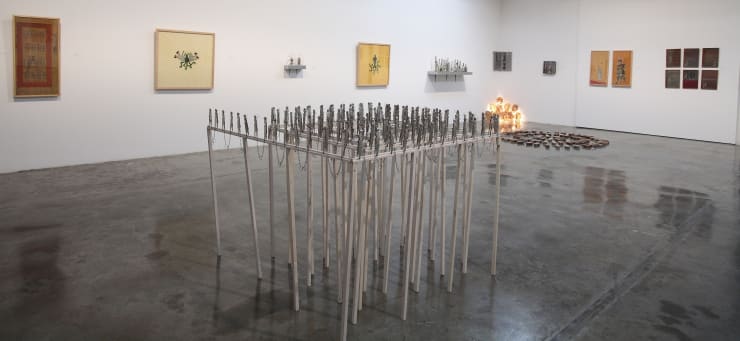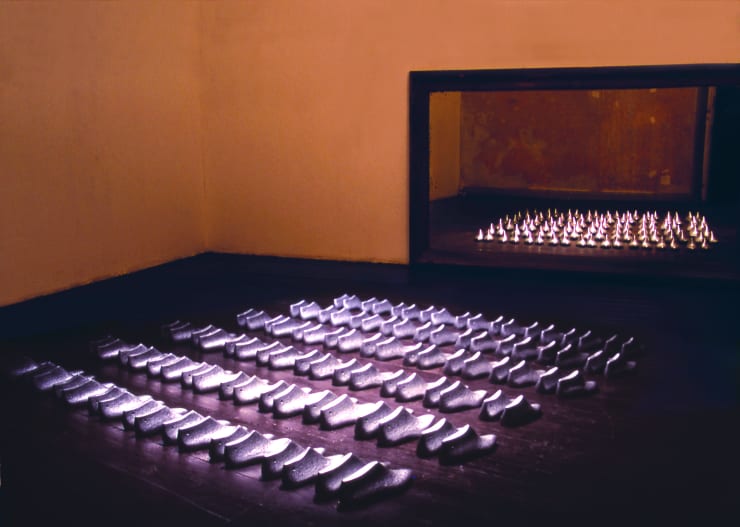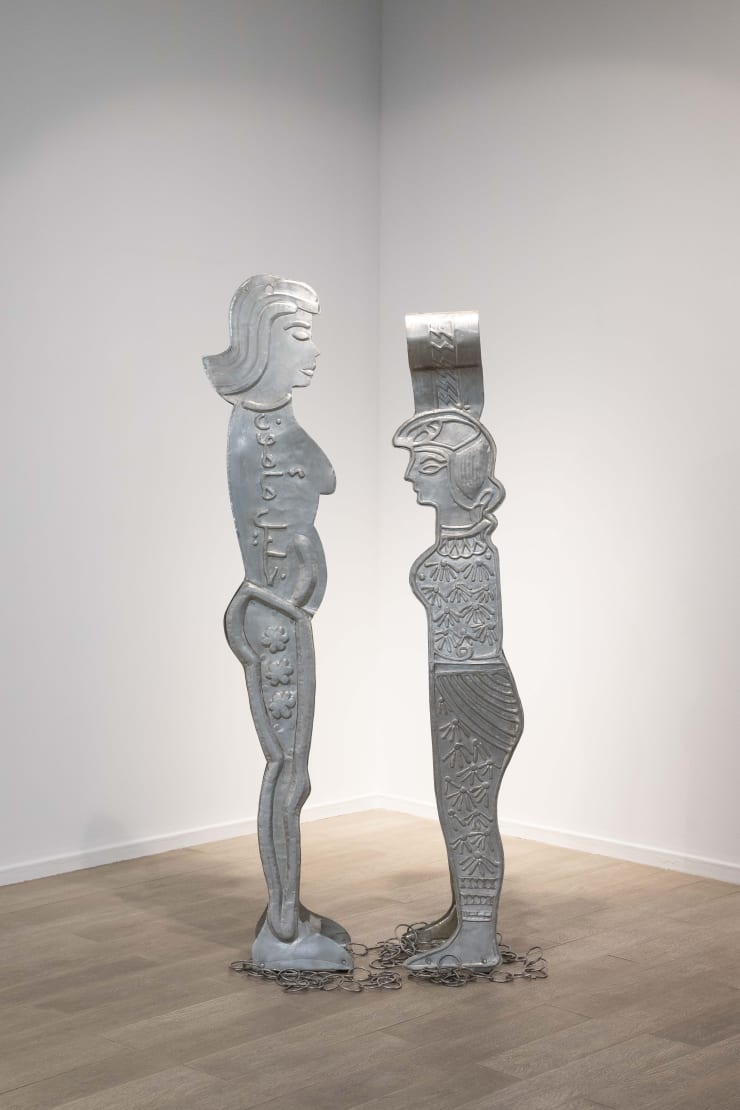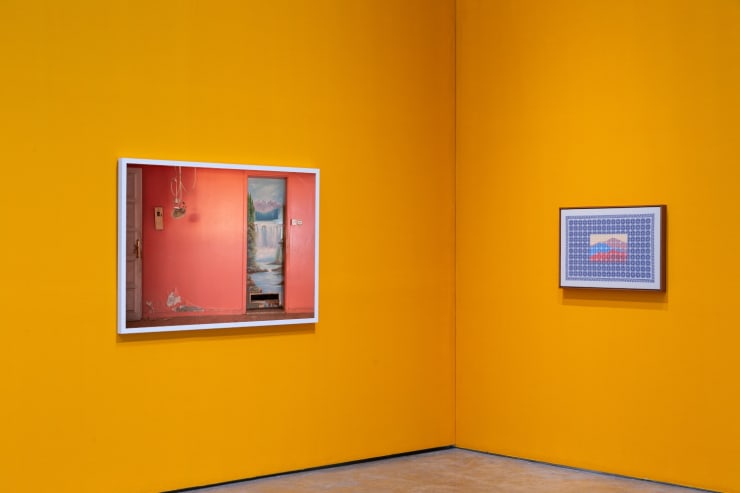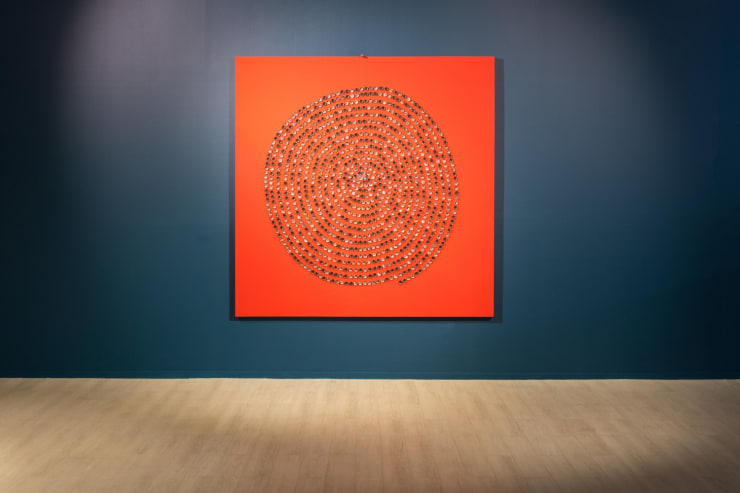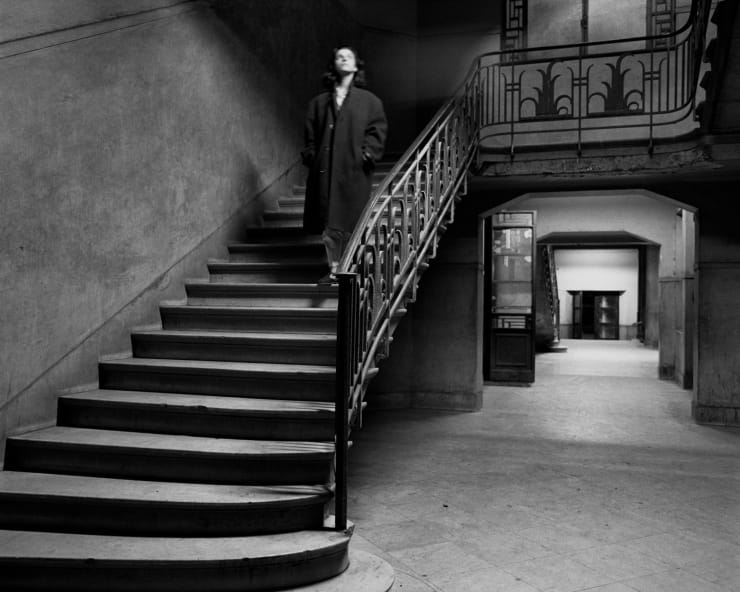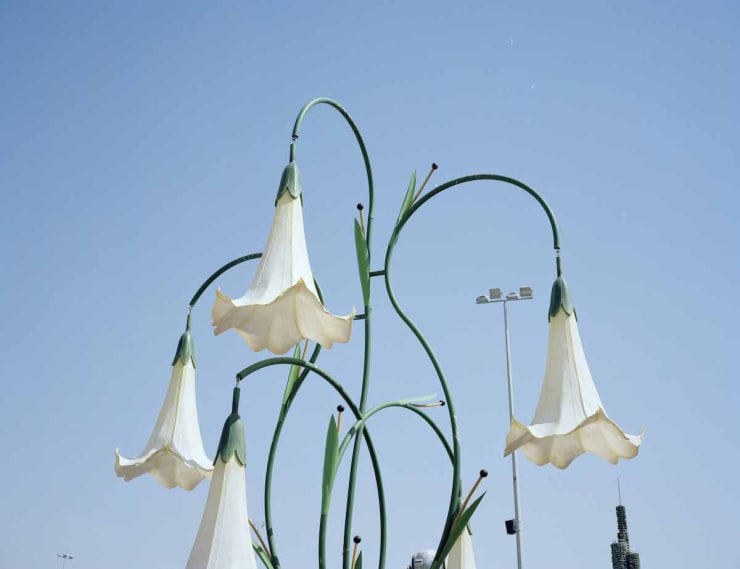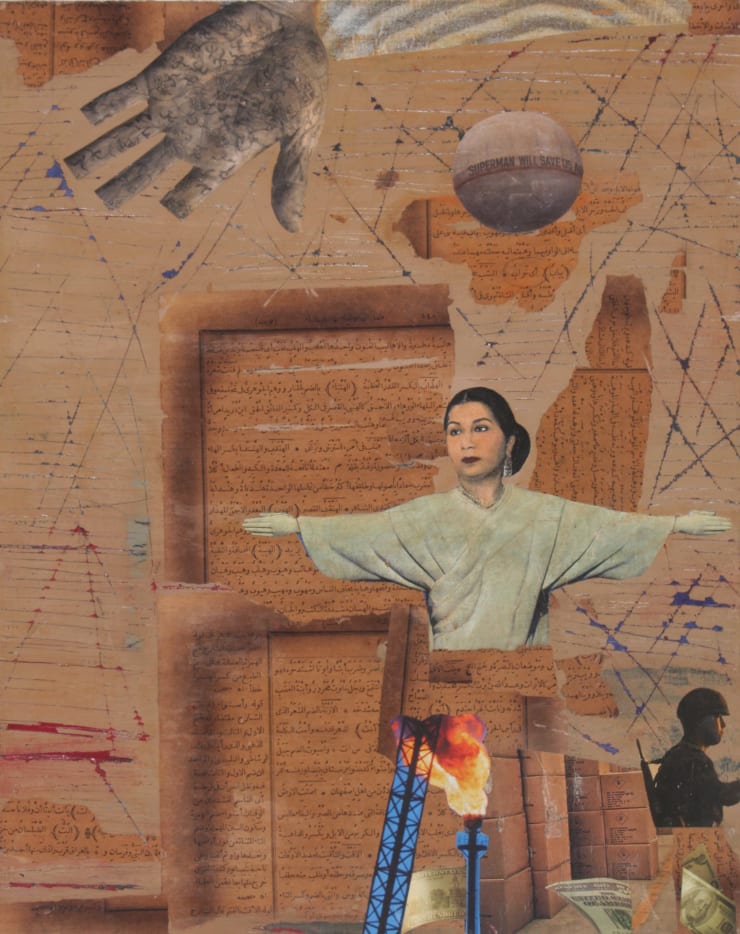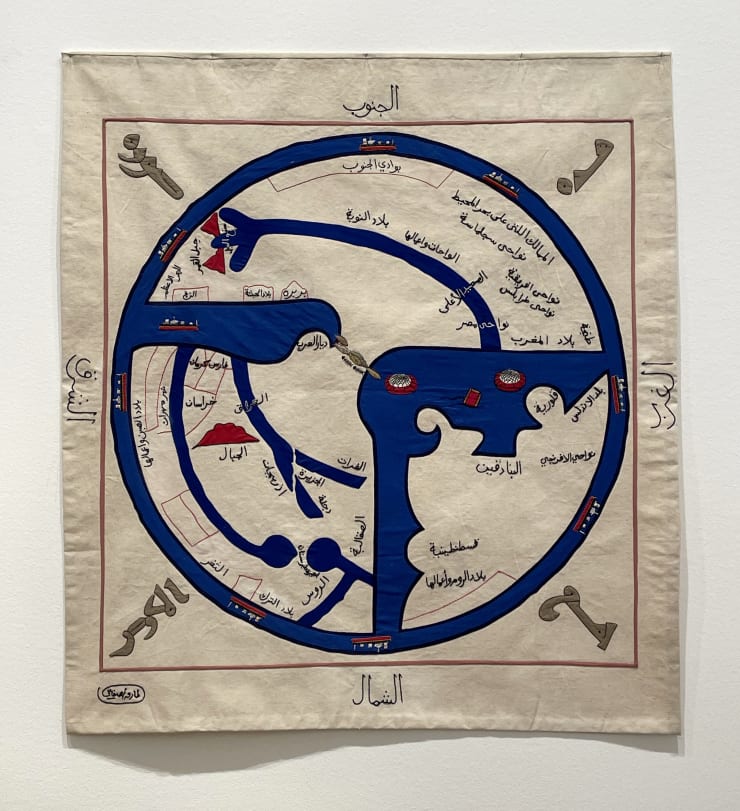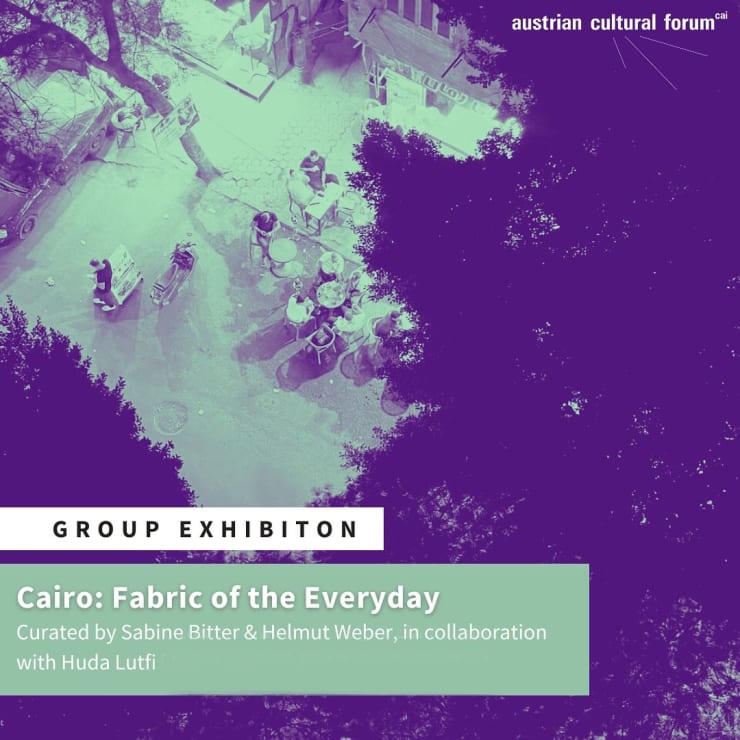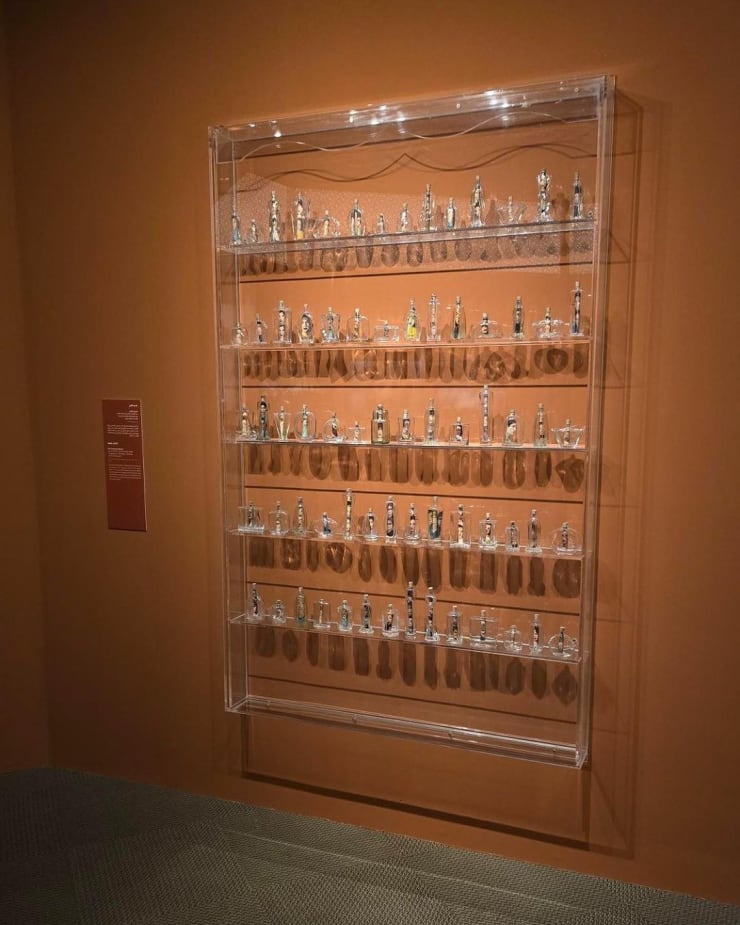Huda Lutfi
Cultural historian Huda Lutfi is a self-taught artist. An Associate Professor at the American University, Cairo, Lutfi holds a PhD in Islamic Culture and History. Her artistic practice is closely aligned with her research, both of which reflect upon history and traditions as they exist in the contemporary world. In considering the present-day interpretations and misinterpretations of the past, Lutfi investigates the human psyche as it relates to remembrance.
Lutfi's practice has always been in conversation with a larger political context. She traditionally incorporated strong elements of popular culture, political insignia, and a play on slogans and language. The human figure has been an essential part of her language; it often came in the form of deconstructed Cairo mannequins, in repetition and as reflections of excess, waste, and the value of bodies in the urban context that engulfs her oeuvre. Lutfi's use of pop icons has been confrontational and direct while also abstracted to create sharp statements on social and political conditions. Her work took a more self-reflexive and inward turn in the recent years (Still, 2018). While some of the work remained figurative it would be set in surrealistic domestic scenes, exploring silence and other metaphors for death, reflecting on personal questions and familial concerns (When Dreams Call for Silence, 2019). In her following series of work, Healing Devices (2020), Lutfi oscillates towards sculptural paper abstractions. Inspired by al-Jazari’s book on The Knowledge of Ingenious Mechanical Devices, Lutfi enters zones of unvisited historical memory. “In the face of subjective and collective states of constraints and anxiety,” she says, “the actual practice of making these ‘healing devices’ brought about not only emotional relief, but also an open and playful process spurred on by the surprises of experimentation.”
In her most recent Our Black Thread series, Lutfi's reactions to her environment takes on an even quieter meditative discourse from her previous work. She invokes feminine traditions of craftsmanship and dedicates days of labor to create numerous miniature embroideries, a practice that moves between her own home and her studio. In abstracting a process of a historically predetermined craft, she creates trajectories and lines without planning an end result. Leaving in all the irregularities and glitches, one can track the entanglements and material relationships between the elements and their points of juncture with her own mind.
Selected solo exhibitions include; Healing Devices, Dallas Museum of Art, Texas, USA (2021); Our Black Thread, Gypsum Gallery, Cairo, Egypt (2021); When Dreams Call for Silence, The American University in Cairo, Tahrir Cultural Center, Cairo, Egypt (2019); Still, The Third Line, Dubai, UAE (2018); Magnetic Bodies: Imaging the Urban, The Third Line, Dubai, UAE (2016); Cut and Paste, Townhouse Gallery, Cairo, Egypt (2013); to name a few.
Selected group exhibitions include;The Circle Was a Point, Foundry Downtown Dubai, UAE (2024);Women Defining Women In Contemporary Art Of The Middle East And Beyond, Los Angeles County Museum of Art, Los Angeles, USA (2023); History Leads to Twisted Mountains, ARDforart, Cairo, Egypt (2022); Reflections contemporary art of the Middle East and North Africa, The British Museum, London, UK (2021); There Is Fiction In The Space Between, The Third Line, Dubai, UAE (2020); Occupational Hazards, Apexarts, New York, USA (2019); Tell me the Story of all These Things, Villa Vassilieff, Paris, France (2017); The Turn: Art Practices in Post-Spring Societies, Kunstraum Niederoesterreich, Vienna (2016); La Bienal del Sur, Caracas, Venezuela (2015); Terms & Conditions, Singapore Art Museum, Singapore (2013); My World Images, Festival For Contemporary Art, Copenhagen, Denmark (2010); to name a few.
Lutfi currently lives and works in Cairo, Egypt.
-

Huda Lutfi
Unraveling 15 Apr - 27 May 2025'Unraveling' is the fourth solo exhibition by Huda Lutfi at The Third Line.Read more -

Hot Spots
A Collaboration Between Tabari Artspace and The Third Line 9 Jan - 10 Mar 2025Hot Spots is the first collaborative exhibition between Tabari Artspace and The Third Line at Sotheby’s, Dubai. This exhibition is part of Sotheby’s ongoing collaboration with regional galleries and brings...Read more -

THERE IS FICTION IN THE SPACE BETWEEN
23 Mar - 30 Jul 2020The Third Line is pleased to present There Is Fiction In The Space Between , a group exhibition celebrating the gallery’s fifteenth anniversary. This exhibition draws on the breadth of...Read more -

STILL
Huda Lutfi 12 Nov - 27 Dec 2018The Third Line is pleased to present Still , Huda Lutfi’s third solo exhibition at the gallery. Featuring new works produced over the last year and a half, the exhibition...Read more -

MAGNETIC BODIES: IMAGING THE URBAN
Huda Lutfi 25 Apr - 4 Jun 2016The Third Line is pleased to present Magnetic Bodies: Imaging the Urban , Huda Lutfi’s second solo show in Dubai. The exhibition, which includes photo-collage, sculpture, installation and video works,...Read more
-

Perpetual Inventory And Dr. O’s Pop Shop
Selections Magazine, December 31, 2022 -

Charity art exhibition for Palestinian children opens in Cairo: 'This is the least that we can do'
Nada El Sawy, The National, May 26, 2021 -

A British Museum exhibition challenges misconceptions about ‘Islamic art’
Jonathan Gornall, Arab News, February 12, 2021 -

Timelines and topographies step up at The Third Line show
Muhammad Yusuf, Gulf Today, December 29, 2020 -

Art History’s Best Mustaches: Huda Lutfi’s Bespectacled and Mustachioed Self-Portrait
Benjamin Sutton, Blouin Artinfo, November 18, 2013 -

Egypt: Art From Tahrir
Myrna Ayad, Canvas Magazine, February 1, 2013 -

Huda Lutfi: The Artist and the Historical Moment
Mai Serhan, Jadaliyya, October 18, 2012
-

Huda Lutfi | IMAGINE CLIMATE DIGNITY | Kunstlerhaus Wien
EXHIBITIONS March 1, 2025Huda Lutfi participates in ‘IMAGINE CLIMATE DIGNITY,’ a group exhibition at Künstlerhaus Wien in Vienna, Austria, curated by Barbara Höller and Simon Mraz. Lutfi has...Read more -

Huda Lutfi | Cairo: Fabric of the Everyday | Austrian Cultural Forum
EXHIBITIONS November 27, 2024Huda Lutfi participates in the group exhibition Cairo: Fabric of the Everyday at the Austrian Cultural Forum, Cairo, Egypt. On view until 28th November 2024...Read more -

Huda Lutfi | Perfumes of the East | The National Museum
EXHIBITIONS August 5, 2024Huda Lutfi participates in the group exhibition Perfumes of the East at The National Museum, Riyadh organized by Institut du Monde Arabe. 21th May -...Read more

